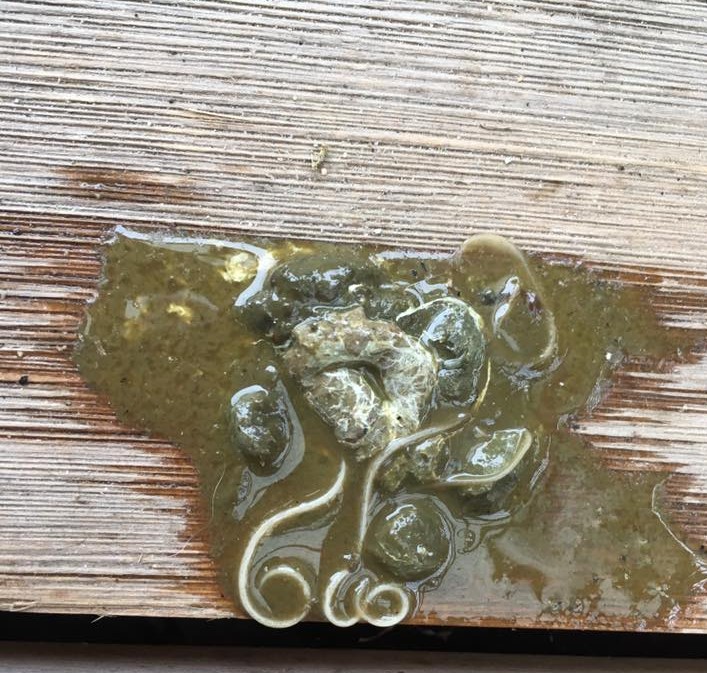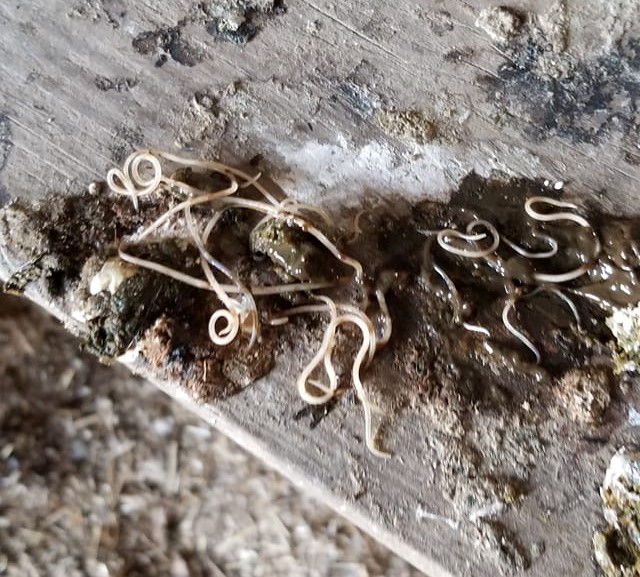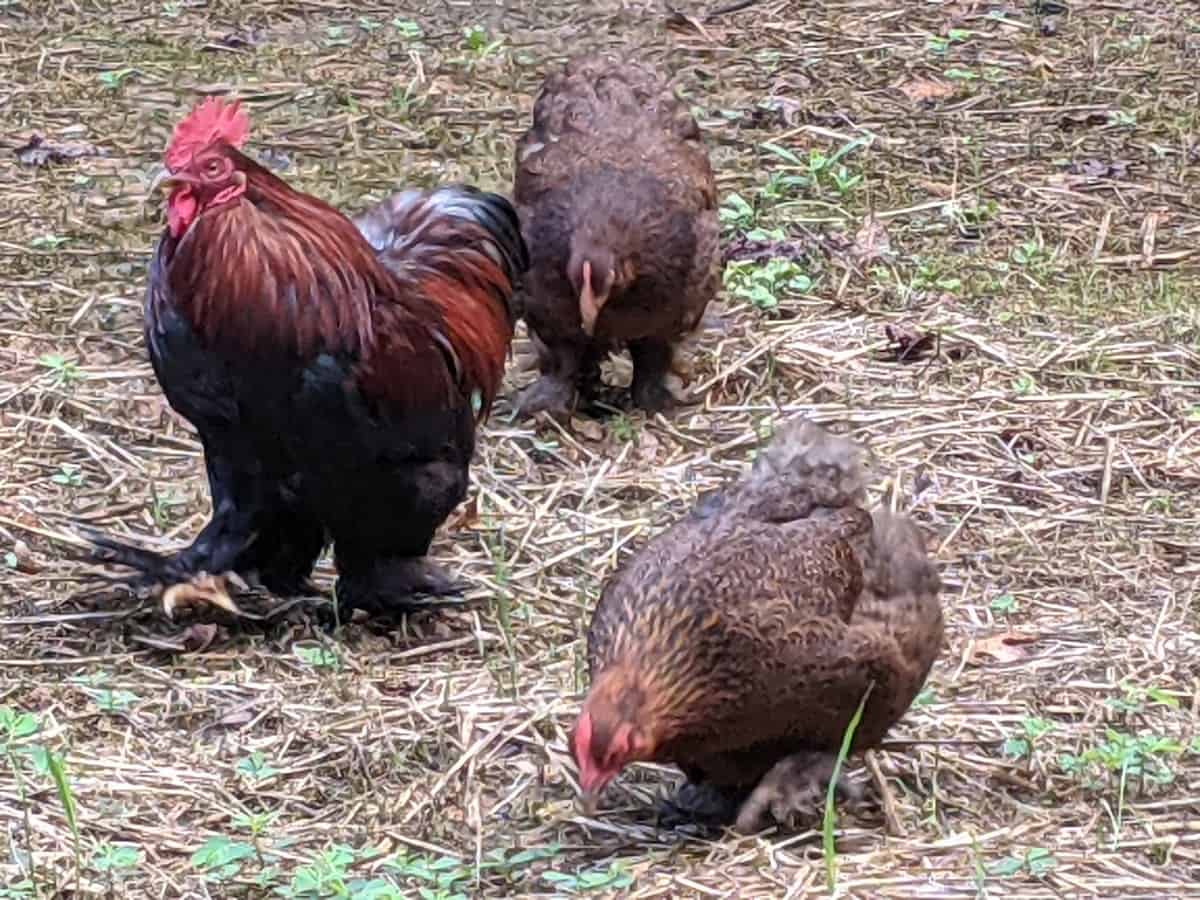Internal parasites make most of us feel a bit squeamish. The thought of a worm infestation in our chicken flock makes us rush off to the nearest agricultural depot searching for deworming products.
Six different types of worms can infect chickens. Only deworm your chickens when necessary. Chicks must be more than six weeks old, and chickens should not be molting when you worm. Choose a wormer appropriate to the type of worm infestation. Natural wormers are helpful for mild infestations.
It is helpful to educate yourself about worm infestations when you are considering worming your chickens. Not all wormers kill all worm types, and thus, you need knowledge about the medicines that eradicate worms.
- What Types Of Worms Do Chickens Get?
- How Can You Tell If A Chicken Has Worms?
- Does Poop On Eggs Mean Chickens Have Worms?
- What Happens When There Is A Worm In An Egg?
- Can You Eat Eggs From A Chicken With Worms?
- What Is The Best Worming For Chickens?
- How Often Should Chickens Be Wormed?
- How Long After Worming Chickens Can You Eat The Eggs?
- At What Age Do You Worm Chickens?
- Conclusion.
- References.
What Types Of Worms Do Chickens Get?
Chickens can get several different worms. They all present with various symptoms, and you can sometimes determine the type of worm you are dealing with based on these symptoms.

Roundworms In Chickens.
Roundworms are the most common worms found in chickens. They are also known as ascarids and specifically Ascaridia Galli. They are found in the small intestine and can be from one inch to five inches (3 – 12 cm) long.
White roundworms are found primarily in young chickens under four months. As the chicken matures, its immune system develops a resistance to the worms and will kill most of them.
The symptoms of ascarids are anemia, lethargy, and diarrhea. Anemia results from the worm larvae migrating through the body and causing bleeding. Severe cases of an infestation can kill the chicken from anemia. Additionally, there may be so many worms that they obstruct the intestine, causing death.
Threadworms In Chickens.
Threadworms or capillary worms (Capillaria) are very thin worms found in the chicken’s crop and esophagus. Capillaria eggs are found buried in the lining of the intestine. These worms cause chronic inflammation and focal lesions in the gastrointestinal system.
Symptoms of threadworm infestation are tiredness, anemia, reluctance to eat, emaciation, and sometimes death.
What Are Gapeworms And Do Chickens Get Them?
Gapeworms are known as synguamus trachea. These nasty worms attach to the mucous membrane of a chicken’s trachea (windpipe). If there is a heavy infestation, the chicken keeps opening its mouth and gaping as it tries desperately to breathe.
Gapeworm is found more often in younger chickens. The chickens may develop a bluish color to their wattles and combs as they have insufficient oxygen. They do not eat because of their respiratory distress and thus lose weight. Infestation with gapeworm can be fatal.
Do Chickens Get Tapeworm?
Chickens can get tapeworm (Cestodes) which is a flattened, segmented worm. Tapeworms live in the intestines and are seen in young and adult birds. They cause emaciation and are often associated with chickens that are malnourished or have a depressed immune system.
They can grow up to five inches (12,7 cm) and generally do not cause death in the chicken. Chickens get tapeworms from eating snails or beetles, which act as intermediate hosts in the tapeworm life cycle. Tapeworms are challenging to treat, and sometimes it is better to control the beetle and snail populations.
Cecal Worms In Chickens.
Cecal worms (heterakis gallinarum) are found in the ceca. Ceca are pouches or sacs that occur where the small intestine and large intestines meet. Cecal worms are not generally harmful to chickens. They may sometimes cause diarrhea and weight loss.
Eyeworms In Chickens.
Eyeworms (Oxyspirura mansoni) usually occur in chickens in hot climates. The worm lives under the third eyelid causing extreme irritation and swelling of the eye. It does not usually cause death, but the chicken can lose weight because of the pain and irritation.

How Can You Tell If A Chicken Has Worms?
You can tell a chicken has worms if you see any symptoms that are mentioned above. Sometimes chickens can have worms, and they show no signs. The most scientific way to check for worms is to take a fecal sample and have it examined by a veterinarian or laboratory.
You can also check the feces of your chickens for worms regularly.
Does Poop On Eggs Mean Chickens Have Worms?
Poop on eggs does not mean that the hen has worms. Pushing out an egg is hard work. Chickens only have one opening for pooping and laying eggs. It is therefore not surprising that sometimes a little poop comes out with an egg.
What Happens When There Is A Worm In An Egg?
A worm in an egg, fortunately, does not happen often. A roundworm may crawl up into a hen’s oviduct ( the region of the body where the egg is formed). The worm becomes encapsulated in the egg. This is not dangerous, but this seriously freaks most people out, and it is pretty disgusting. Just toss the egg and worm your chickens.
Can You Eat Eggs From A Chicken With Worms?
You can eat eggs from a chicken with worms. Chickens have worms that are specific to birds, and these do not infect humans.
What Is The Best Worming For Chickens?
There are natural wormers such as garlic, pumpkin seeds, and diatomaceous earth. These may be helpful for mild infestations but cannot be guaranteed to be quickly effective in severe infestations.
Severe infestations will need registered veterinary products, and it would be best to consult a veterinarian. The vet will examine the chicken feces and prescribe a product best suited to eradicating those specific worms.
There is a natural dewormer made from natural ingredients such as Verm-X found on amazon. You can also find other dewormers at specialized stores.
How Often Should Chickens Be Wormed?
Chickens should only be wormed with registered products if they show symptoms or if a vet advises you to do so. Many chicken keepers have never had to worm their chickens and only use natural products that aid gastrointestinal health. Worming too often can cause health problems.
How Long After Worming Chickens Can You Eat The Eggs?
If you use a registered veterinary product, you must follow the guidelines for the withdrawal period for that worm remedy. These vary according to the products and range from five days to two weeks. Read the package insert or ask your vet to give you information on withdrawal times.
At What Age Do You Worm Chickens?
You should only worm chickens when they are older than six weeks. Avoid worming chickens that are molting or stressed. Worming medicines can kill natural flora in the chicken’s gut, so it is vital to only worm when necessary.
Conclusion.
Chickens can be infected by worms that are specific to birds. Young birds are more likely to get worms, and they will develop resistance to most worms as they age. Tapeworms infect any age chicken.
Follow your veterinarian’s advice and be careful not to use worming products too often. Natural wormers used regularly are a better option but may not be effective in severe infestations.
References.
McKay, S. 2011. Common Poultry Worms. https://veterinary-practice.com/article/common-poultry-worms
Pitesky, M. 2014. To Worm or Not to Worm? https://ucanr.edu/sites/aves/files/336232.pdf





